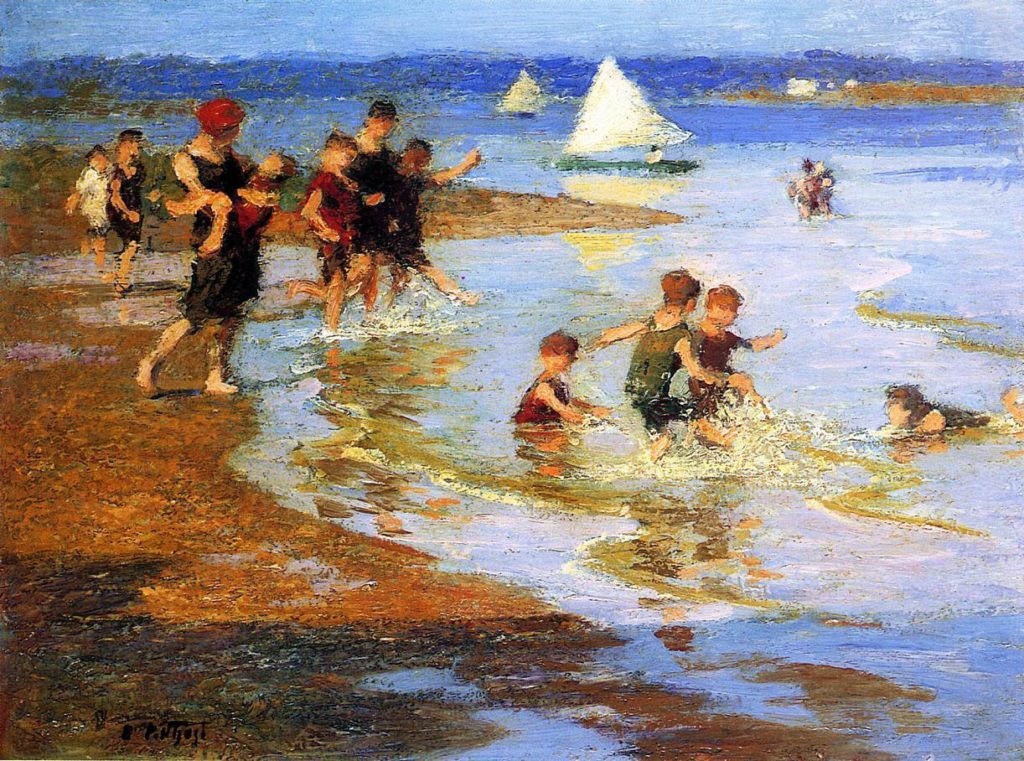
Wednesday
Our family had to cancel a planned visit to Myrtle Beach this year, which means that Julia and I didn’t get to spend a week with our eight-year-old grandson. To vicariously experience the sea, I turn to a luminescent poem by Sewanee English chair Jennifer Davis Michael. It appears in her recently published chapbook Let Me Let Go.
Opening the Hand
I don’t recall my first view of the beach:
my terror at the blank expanse of sand
and that tremendous, always-moving water.
No silent-movie footage of me bolting
for the motel’s sliding door or burying
my face in my father’s scratchy neck.
But there’s a photo of my hooded self,
snug, smiling in the nest he dug for me:
a tiny sea enclosed by shoveled walls
--infinity made comprehensible.
I do remember two or three years later,
he took me in the surf up to his waist
and taught me how to float there, on my back.
The water chilled my ears and muted sounds,
so that I felt the waves but didn’t hear them.
His hand stayed on my shoulder
until a gust of wind blew off his cap
and he lunged, letting go of me. Just then
an upstart wave, whipped up by that same wind,
broke over me. I choked and came up crying,
cursing him in the wordless way of children,
but he was there. He’d never been away.
And yet, in that split-second of emptiness,
by opening his hand, he’d let me feel the sea.
The poem takes me back to an unforgettable moment at Edisto Beach when I was six or so. The tide was out and I was trailing my father by some distance through the shallow surf when I hit a dip. Suddenly I found myself totally submerged and thrashing around. Somehow I made it to the surface and regained my footing, but I carry that moment of panic with me to this day.
As Jennifer would observe, in that “split-second of emptiness” I experienced the sea. To be sure, we have drawn different lessons. In her case, she thinks of her father as always being there for her, even when he seems to have let her go. My father, by contrast, seemed impossibly far away. He never saw my sudden immersion, and I lacked the language to convey the trauma. I was like the “country husband” in the John Cheever story of that name, unable to convey to those close to me my near-death experience.
But in another way, the experiences were the same. Both of us were raised in protective environments—lovingly constructed nests “enclosed by shoveled walls”—only to experience a reality shock. I love the movement in the poem from not hearing the waves (when her father is holding her) to suddenly experiencing them in a new and visceral way. One of life’s gusts hits her father unexpectedly and he lets his daughter go, thereby allowing her a momentary glimpse of life on her own. The world never feels quite the same again.
That’s why, though we may forget all the surrounding circumstances, that moment endures.

